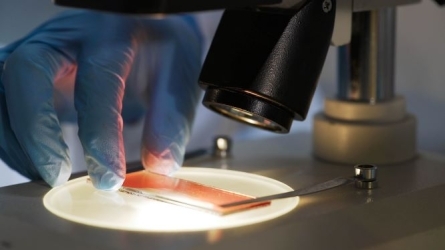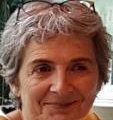
Screening debate: benefits and harms balance
Description
Cancer is one of the main causes of death in the world, and a lot of research is being developed in order to know about the associated risks (life styles, age, sex, environmental and genetics factors) and prevent new cases. Early detection and treatment in initial stages have enabled the reduction of the socioeconomic burden as well as an improvement in the quality of life of survivors.
Although the recommendations for changing life styles (European Code Against Cancer), have been implemented by governments and health systems (tobacco is a good example), factors like obesity, excess of meat, sugar consumption and sedentary lifestyles are still out of control. So, secondary prevention has been researching to detect tumors in asymptomatic phase and guarantee a less aggressive treatment decreasing morbidity, mortality, and preventing new cases in the population.
Because not all cancers can be detected in early stages, the number of tests are limited by their cost-effectiveness and the acceptance by professionals and the population, among other criteria. Nowadays, these tests, named screening tests, are only recommended for breast, colorectal and cervical cancer. In prostate cancer, general population screening is not recommended and in the case of lung cancer, the latest studies point to its effectiveness in heavy smokers.
Therefore, these screening strategies were well accepted by scientists, professionals and general population because of their proved benefits, and the participation rate has been considered the most important challenge for authorities and the planners of the programme both in the EU and overseas. However, analysis based on incidence, mortality and side-effect trends have shown different drawbacks due to the screening (false positive, false negative, overdiagnosis, overtreatment). So, the controversy is on the table much in the same way as with the vaccination programmes, maybe more intense between scientists and professionals than in the society until now.
These polemic issues have driven professionals who coordinate and evaluate the screening programmes to a deep reflection aimed at improving the information through society and persons that allow them to take into account the benefits for the general population and the harms for a few people. That means, to clarify the dimension of benefits and harms. Their better knowledge could allow better autonomous decisions.
In all of this debate, it is necesary to incorporate the inequalities as a key point, as another element of concern. Gender, residence, socioeconomic level and health system access show differences in cancer survival among more deprived people.
This activity is included in the cycle "Health, a commitment to people" that is developed in collaboration with the Department of Health of the Basque Government and Osakidetza, which offers reduced fees (75% discount on advance rate) and is especially aimed to the training and updating of professionals of the public health of the Autonomous Community of the Basque Country.
Objectives
To analyze the European recommendations related to cancer screening.
To improve knowledge about screening strategies and its European implementation: EU, Spain and the Basque Country.
To analyze the main benefits, harms and cost-effectiveness of screening programmes and recommendations for improving the communication.
To share knowledge and scientific evidence, based on new screenings and its personalization.
Activity directed to
- University students
- Teachers
- Professionals
- All public
- Researchers
Program
09-09-2019
“Entrega de documentación“Presentation by the Director of the activity
- Jone Miren Altzibar Arotzena Osakidetza- Servicio vasco de Salud - Coordinadora Cribado de Cáncer de Mama en Euskadi
- Maria Isabel Portillo Villares Osakidetza- Servicio vasco de Salud - Coordinadora Cribado de Cáncer Colorrectal en Euskadi
“Estrategia Contra el Cáncer en España y los proyectos Joint Action“
- José Maria Borràs Andrés Departament de Salut - Generalitat de Catalunya - Director del Pla director d'oncologia
Round table: “Cribados de cáncer en Euskadi: mama, colorrectal y cérvix. Valor añadido de nuestros programas. Áreas de mejora y metas futuras“
- Jone Miren Altzibar Arotzena Osakidetza-Servicio Vasco de Salud - Coordinadora Cribado Cáncer de Mama (Moderator)
- Maria Isabel Portillo Villares Osakidetza-Servicio Vasco de Salud - Coordinadora Cribado Cáncer Colorrectal y Prenatal
- Edurne Arenaza Lamo Osakidetza-Servicio Vasco de Salud - Coordinadora Cribado Cáncer de Cervix
“Recomendaciones para la erradicación del Virus del Papiloma Humano (VPH)“
- Laia Bruni Coccoz Instituto Catalán de Oncología - Unidad de Información e Intervención en infecciones y cáncer
Synthesis
10-09-2019
Presentation by the Director of the activity
- Maria Isabel Portillo Villares Osakidetza- Servicio vasco de Salud - Coordinadora Cribado de Cáncer Colorrectal en Euskadi
“Estrategias de cribado: de los ensayos clínicos randomizados a las recomendaciones europeas“
- Harry de Koning Universidad de Erasmus. Rotterdam (Holanda) - Profesor de Salud Pública y Evaluación de Screening
Round table: “la necesidad de trabajar juntos en las estrategias de cribado“
- Pedro María Olaeta López de Bergara Asociación Española Contra el Cáncer - Director de Proyectos (COO)/MASWER ENGINEERING GmbH
- Amaia Bacigalupe Departamento de Sociología 2 UPV/EHU - Profesora
- María Purificación Martínez Del Prado Hospital Universitario de Basurto/OSI Bilbao Basurto - Jefe de Sección de Oncología Médica
“Evaluación de los Programas de Cribado. Coste-efectividad. Proyecto EU-TOPIA“
- Iris Lansdorp-Vogelaar Department of Public Health of Erasmus MC - Profesora Asociada
Synthesis
Directors

Maria Isabel Portillo Villares
Osakidetza
I am a doctor specialized in Public Health. PhD in social Psychology. I worked in quality assurance, as a subidrector in the Basque Country hospitals, and epidemiology surveillance in the Basque Health Service. Since 2008 I am the Colorrectal Cancer Screening Coordinator, leading the plans, organizitation, monitoring and evaluation. I coordinate the prenatal screening as well. I have been leading and collaborating in different research projects ( regional, national and international level). I published papers related to epidemiology surveillance, technologies assessment and public health. ORCID: 000-0002-3871-3423. Institutional collaborator in European Projects Joint Action (CANCON and IPAAC) and EU-TOPIA. Member of Screening Group of the Spanish Epidemiology Society

Jone Miren Altzibar Arotzena
Osakidetza
• Jefe Sección Asistencial, Osakidetza, 2016-actualidad • Técnico Vigilancia Epidemiológica, Departamento Sanidad G.V., 2006-2016 • Jefe Programas Asistenciales, Osakidetza, 1991-2006 • Técnico Promoción de la Salud, Osakidetza, 1989-91 Formación Académica • Licenciada en Medicina y Cirugía, UPV en 1983 • Master en Salud Pública (MPH), Universidad Puerto Rico 1987 Más de 20 años de experiencia profesional en el campo de la Salud Pública en los campos de Promoción, Prevención Primaria y Prevención Secundaria en programas como Salud Escolar, Vigilancia Epidemiológica de enfermedades transmisibles y crónicas, participación en Consejo Asesor de Vacunaciones de Euskadi y Programa de Detección Precoz del Cáncer de Mama He participado en la publicación de más de 50 artículos en revistas científicas y participado en los siguientes proyectos de investigación: Estudio cycEVA de casos y controles para estimación de la efectividad vacuna antigripal
Speakers

Edurne Arenaza Lamo
Coordinadora Programa Cribado Cérvix. 2017-2019 Enfermera .1999. Matrona. 2006 Diplomatura post grado .Experto universitario en Enfermería de empresa 2001 Master en gestión de la prevención en la empresa 2004. Experiencia asistencial en ámbito hospitalario y atención comunitaria. Participación en diferentes proyectos de docencia y comités asesores en ámbito hospitalario.

Amaia Bacigalupe
Licenciada en Sociología (UPV/EHU), Master en Políticas Públicas y Sociales (UPF) y Doctora en Salud Pública (UAB). Es profesora del Departamento de Sociología 2 de la UPV/EHU, pero su experiencia laboral ha estado muy ligada al Departamento de Salud del Gobierno Vasco y a Osakidetza, donde ha realizado labores de investigación principalmente en las líneas de monitorización de las desigualdades sociales en salud con especial atención en el impacto de la crisis sobre la salud, las desigualdades sociales en la atención sanitaria y la Evaluación del Impacto en Salud (EIS). Actualmente, también trabaja en el área de salud urbana y de las desigualdades de género en la salud mental. Ha participado y liderado diversos proyectos de investigación y ha publicado numerosos artículos en revistas de impacto.

José Maria Borràs Andrés
MD (1981) Master in Methodology in Health Sciences. Universitat Autonoma de Barcelona, 1990. Ph.D. Medicine, Universitat Autonoma de Barcelona. 1990. Public Health and Preventive Medicine specialist, Ministry of Health of Spain. - Advanced Executive Management Program (PADE 2005). IESE Business School, University of Navarra. This Executive educational program covered topics on economics, management, human resources and executive skills. PAST PROFESSIONAL POSITIONS • Head of the Evaluation Unit of the Catalan Agency for Health Technology Assessment of the Department of Health (June 1992 to March 1995). • Director of the Catalan Institute of Oncology. (January 1997 to May 2006). The ICO is a Cancer Institute providing health care in medical oncology, radiotherapy, clinical hematology and palliative care as well as research and training for a population of 3 M inhabitants. PRESENT PROFESSIONAL POSITIONS

Laia Bruni Coccoz
Degree in Medicine, Master in Public Health, MSc in Research Methodology in Health Sciences, and a PhD in Epidemiology. Her areas of expertise are the epidemiology of Human Papillomavirus (HPV) and related cancers, HPV vaccination and cervical cancer screening. As Head of the UNIC-I&I, she leads a multidisciplinary team devoted to the design and implementation of intervention strategies in public health focused on the prevention of HPV-related cancers. The main lines of research are: 1) the production of quantitative population-level estimates of indicators for HPV-related infections, disease burden and prevention strategies, including vaccination and cancer screening; 2) the modelling and economic evaluation of HPV vaccination and cervical cancer screening; 3) the study of the impact, effectiveness and acceptability of HPV vaccination, and of alternative cervical cancer screening strategies based on HPV detection, such as self-sampling.

Harry de Koning
I am Deputy Head and Prof. of Public Health&Screening Evaluation, Dept. of Public Health, Erasmus MC Rotterdam, NL. My major scientific contributions are in the areas of (1) designing, running and evaluating (often large-scale) multidisciplinary population-based randomized controlled screening trials to establish the efficacy of screening, (2) evaluating active (inter-)national screening programs and clinical tests to establish effectiveness and (3) guiding public health policies on screening and primary prevention using predictions of favourable and unfavourable effects and the cost of interventions, based on micro-simulation modelling of the natural history of disease, risk-prediction modelling and cost-effectiveness and cost-utility analyses. Our multidisciplinary and international research results in recommendations on whether or not to introduce screening, surveillance or other preventive interventions for specific diseases and on policy decisions to introduce it in specific ways.

Iris Lansdorp-Vogelaar
PhD, Associate Professor at the Department of Public Health of Erasmus MC and leads the research group on evaluation of screening of gastrointestinal disorders. . Responsible for the management and development of the MISCAN-Colon model since 2003, and the UW-MISCAN esophagus model . The focus of her research is on the monitoring and evaluation of screening interventions using computer simulation models, with an emphasis on colorectal cancer (CRC) and esophageal cancer screening. Her five most significant contributions to science are: 1) Optimizing CRC screening strategies; 2) Targeted CRC screening and surveillance strategies; 3) Explaining trends and disparities in CRC incidence and mortality; 4) Surveillance of trends in esophageal adenocarcinoma (EAC); 5) Model development, validity and transparency Her modeling work informed the 2018 American Cancer Society. Member of the European Cancer Network. Lead a chapter in the European Guidelines. Dutch award in 2017 for CRC screening.

María Purificación Martínez Del Prado
Médico adjunto de Oncología Médica (1994-1997). Jefe de Sección de Oncología Médica (1997-actualidad) en el Hospital Universitario Basurto Bilbao (Vizcaya). Trayectoria académica: Licenciada en Medicina y Cirugía por la Universidad de Zaragoza (1984). Especialista en Oncología Médica (vía MIR) en el Hospital Universitario Gregorio Marañón de Madrid (1990-1993). Diploma de estudios avanzados por la Universidad de Zaragoza (2005). Máster en Administración y Dirección de Servicios Sanitarios (Fundación Gaspar Casal-Universidad Pompeu Fabra, 2009-2010). Doctora en Medicina por la Universidad Autónoma de Madrid (2018). Actividades y participación en sociedades científicas: Miembro de la Sociedad Española de Oncología Médica (SEOM). Miembro del grupo de trabajo de Trombosis de la Sociedad Española de Oncología Médica. Vocal de la Junta Directiva de GEICAM (2018-2020). Miembro activo de diferentes grupos cooperativos españoles como GEICAM, GECP, GEM, TTD, GETNE,

Pedro María Olaeta López de Bergara
Me incorporé en el año 2014 al comité de pacientes de la AECC, desde ese año he estado asistiendo a los foros convocados por Osakidetza SOBRE EL CRIBADO DE CÁNCER, foros de GARRIGUES WALKER sobre el cáncer de colón, foros de la TVE, SEXTA, TELE CINCO, CADENA CUATRO, EITB, CADENA SER, COPE, RADIO VITORIA, RADIO EUSKADI, HALA BEDI, EL CORREO ESPAÑOL, DEIA, DIARIO DE NOTICIAS DE ALAVA,, etc... En el año 2018 he renovado mi pertenencia al comité de pacientes de la AECC, con otros 4 años de trabajo a la vista.
Registration fees
| REGISTRATION | Until 31-05-2019 | Until 09-09-2019 |
|---|---|---|
| 60,00 EUR | 70,00 EUR | |
| 35,00 EUR | - | |
| 20,00 EUR | 20,00 EUR | |
| 35,00 EUR | - | |
| - | 15,00 EUR | |
| - | 0 EUR |
Venue
Miramar Palace
Pº de Miraconcha nº 48. Donostia / San Sebastián
Gipuzkoa
Miramar Palace
Pº de Miraconcha nº 48. Donostia / San Sebastián
Gipuzkoa




